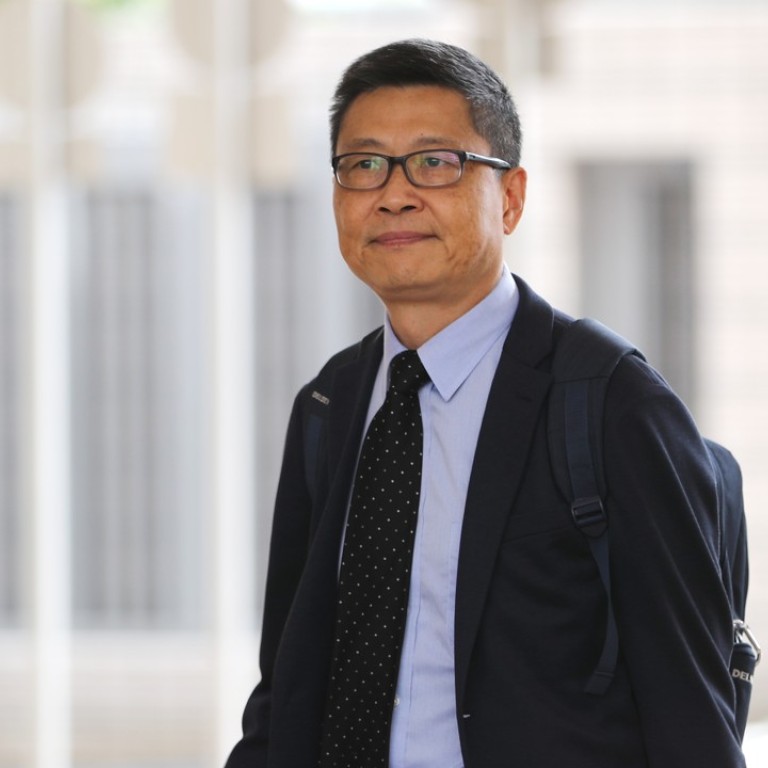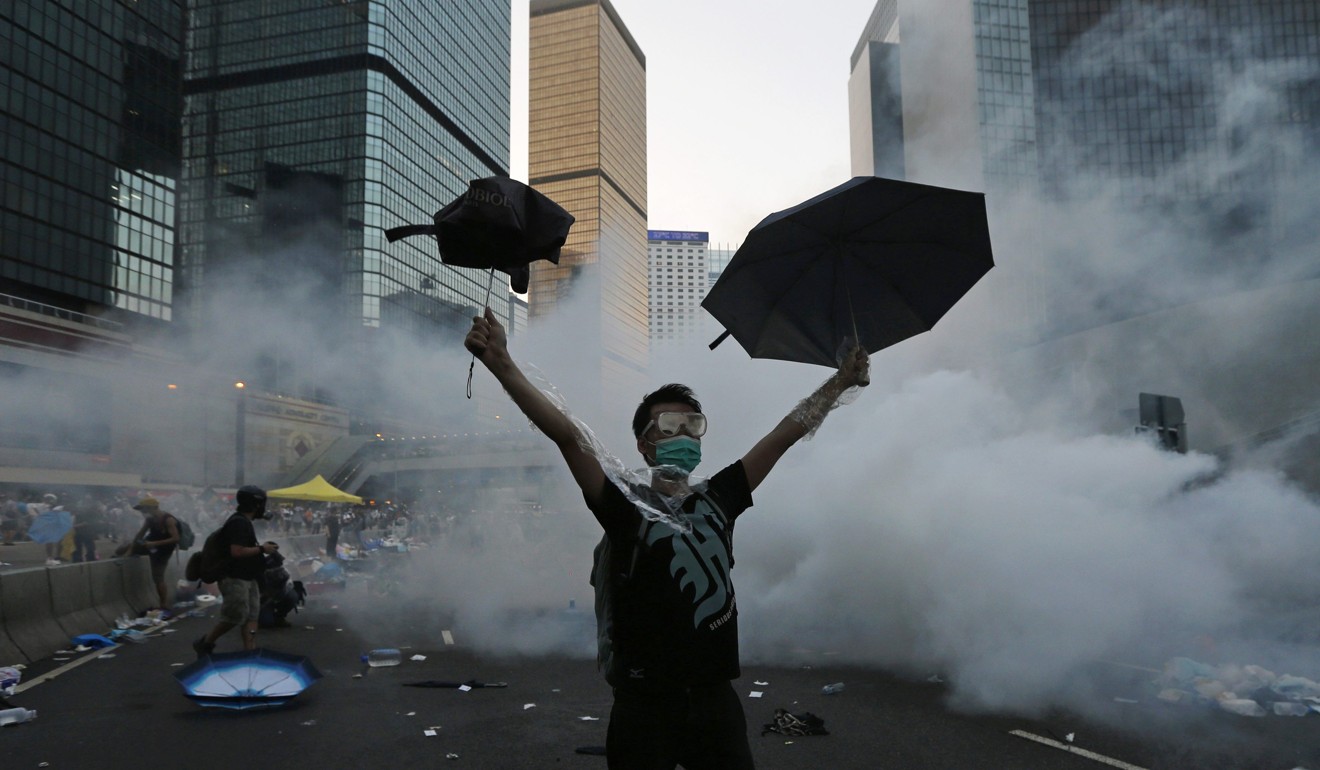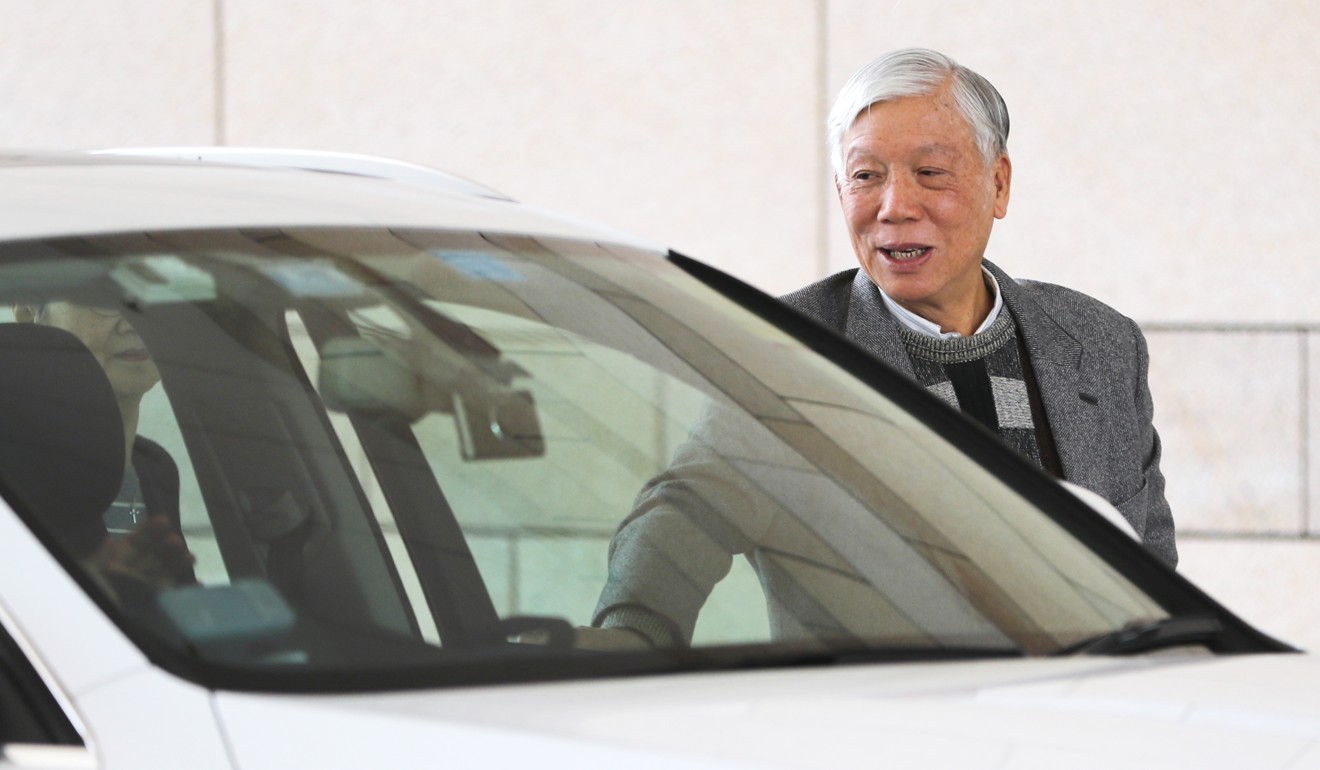
Leader of Occupy movement Chan Kin-man says he lost control less than a month after protest brought Hong Kong to a standstill
- Split between founders and student leaders came after negotiation with government failed
- Chan says he and Benny Tai were back in university positions a month after sit-ins started
A founding member of 2014’s Occupy protests told a Hong Kong court on Friday that he lost control of the movement less than a month after it began.
Dr Chan Kin-man’s surprise admission came as he revealed the real reason he and fellow organiser Benny Tai Yiu-ting had returned to their university positions, just weeks after the movement that brought the city to a standstill began on September 28 of that year.
Testifying for a second day at West Kowloon Court, where he faces a string of public nuisance charges, alongside Tai and the third founder Reverend Chu Yiu-ming, Chan said he had tried to mediate between the government and the protests’ student leaders, who had taken control.

But student leaders had rejected his plan to end the protest when discussions broke down and, as a result, Chan said he, Tai and Chu had faded into the background by October 28.
The outgoing Chinese University professor also detailed more of his exchanges with government officials, and said Carrie Lam Cheng Yuet-ngor, who was chief secretary at the time, had been desperate to find a way to bring the protests to an end.
Talking on the phone after the protesters had settled into occupying roads in the Admiralty district of the city, Lam, who is now Hong Kong’s leader, had wanted to find a way to defuse the crisis, Chan said. In response Chan said they wanted then chief executive Leung Chun-ying and police commissioner Andy Tsang Wai-hung to step down.
Hong Kong’s Occupy leaders on trial: who they are and what they’re accused of
Chan, 59, Tai, 54, and Chu, 74, have pleaded not guilty to three joint charges: conspiracy to cause public nuisance; inciting others to cause public nuisance; and inciting people to incite others to cause public nuisance.
Lawmakers Shiu Ka-chun, 49, and Tanya Chan, 47, and former student leaders Tommy Cheung Sau-yin, 24, and Eason Chung Yiu-wa, 26, have all denied the two incitement charges. So has Raphael Wong Ho-ming, 30, vice-chairman of League of Social Democrats.
Former Democratic Party lawmaker Lee Wing-tat, 63, has denied one count of incitement to commit public nuisance.
On Friday, Chan said after police fired 87 rounds of tear gas at protesters on the first day of the protest, they had attempted further negotiations with the government.

It was the second such exchange, as Chan revealed on Thursday that the founders, who believed civil disobedience should be a last resort, also spoke to Lam months before the crisis began.
“At the time the theme was to consider how to resolve the crisis. This was the question Carrie Lam asked me,” he said.
In response to the demand that Leung and Tsang be forced out, Lam, who was the second most powerful politician in the city at the time, said it was not in her power to remove Leung, and firing Tsang was not a simple process.
But, according to Chan, she was positive about engaging with students, but said it would depend on the chief executive’s decision.
He said the founders then spoke with the then director of the Chief Executive’s Office, Edward Yau Tang-wah, who is now secretary for commerce and economic development.
Hong Kong leader rejects British MPs’ criticism as democracy leaders go on trial
“He wanted us to help open some channels to create a less confrontational atmosphere to launch a dialogue [with the students],” he said.
Chan said at that stage the founders had become middlemen between the authorities and student leaders.
A conversation between the two sides, to which the three were not invited, took place on October 21.
“We hoped that after some results could be achieved through negotiations, the occupation could come to an end,” Chan said.
When it did not, “we thought that should be the time to leave the scene”, he added. “But the students disagreed.”
The trial continues before Judge Johnny Chan Jong-herng.

